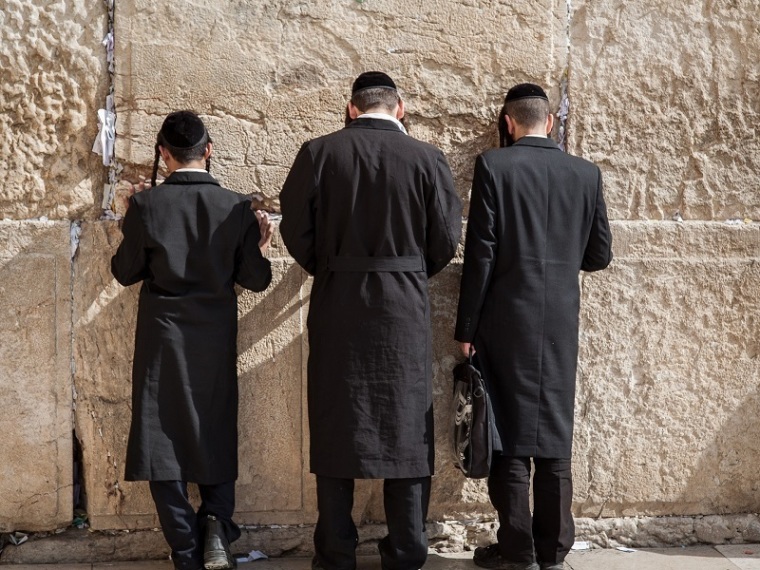
Rev Dr Rowland Croucher the Pastor’s Pastor writes
Being an itinerant (‘hit-run’) preacher has some advantages. I remember a Sunday evening service in a conservative church in rural Victoria, Australia. They had big black Bibles and severe expressions… And they knew their Bibles, and were proud of that.
It was a smallish group, so I decided to engage them in dialogue:
‘Who knows who the Pharisees were?’ They did. ‘The Pharisees got a pretty nasty press in the New Testament – particularly Matthew.’
‘Now tell me all the good things you can think of about the Pharisees.’
I wrote them up on a blackboard:
The Pharisees knew their Bibles; were disciplined in prayer; fasted twice a week; gave about a third of their income to their church; were moral (very moral); many had been martyred for their faith; they attended ‘church’ regularly; they were evangelical/orthodox; and evangelistic (Jesus said they’d even cross the ocean – a fearful thing for Jews – to win a convert).
There was a deep silence.
I asked ‘Peter’ sitting at the front: ‘What’s wrong?’ He pointed to the list and said ‘That’s us!’ ‘Is it?” I responded. ‘Then you’ve got a problem: Jesus said these sorts of people are children of the devil!’
Then we did an inductive exercise on the question: ‘What’s so wrong with this list of admirable qualities?’ Short answer: it omits what was most important for Jesus. Whenever in the Gospels he used a prefatory statement like ‘This is the greatest/most important thing of all…’ none of the above were emphasized by him.
So what were Jesus’ emphases? Yes, loving God, loving others, seeking first the kingdom = obeying God the King … And, from two Gospel verses the evangelicals/orthodox have rarely noticed – Matthew 23:23, Luke 11:42 – justice/love, mercy, faith.
Most important of all
None of these were on the Pharisees’ list. But they’re the most important of all, according to Jesus.
Have you noticed items like justice/love don’t get into our creeds or confessions of faith or ‘doctrinal statements’ either? (I’ve written a book about that: Recent Trends Among Evangelicals ).
Back to the Pharisees. Our text (Matthew 12:1-21) is about the problem of religious ‘scrupulosity’… Jesus and his disciples were walking on the Sabbath through the fields on their way to the synagogue, to church, and they were hungry. So as the law (Deuteronomy 23:25) allowed, they plucked some ears of corn to eat.
But the Pharisees had problems with their ‘reaping’ on the sabbath. In fact, the disciples were breaking four of the Pharisees’ 39 rules about work on the sabbath: technically they were reaping, winnowing, threshing, and preparing a meal!
Now the modern picture of the Pharisees almost certainly trivializes – or demonizes – their piety. These were good people with good motives. But they were ‘good people in the worst sense of the word’. More of that later…
Jesus’ response is to argue from two precedents (lawyers/legalists are at home there) – precedents about necessity and service. David and his friends were hungry, so ate the forbidden bread (though note that when King Uzziah invaded the sacred area from another motive – pride – he was struck with leprosy, 2 Chronicles 26:16).
Then the priests did a lot of ‘work’ on the sabbath – killing and sacrificing animals: so Jesus is saying that if sabbath-work has to do with the necessities of life and duties of sacred service, it’s O.K. and the *spirit* of the fourth commandment is not violated.
Then Jesus reinforces all this with three arguments: someone greater than the temple is here; God wants mercy to have priority over sacrifice; and ‘the Son of man is lord of the sabbath’.
Or, as the New Interpreters’ Bible Commentary puts it (in a way that would appeal to a rabbinical way of arguing): ‘Since the priests sacrifice according to the law on the sabbath, sacrifice is greater than the sabbath. But mercy is greater than sacrifice… so mercy is greater than the sabbath’ (Abingdon, 1995, p.278). I like Eugene Peterson’s translation of this section in The Message: ‘There is far more at stake than religion.
If you had any idea what this Scripture meant – “I prefer a flexible heart to an inflexible ritual” – you wouldn’t be nitpicking like this.’
Then we have the story of the man with the withered hand. Jerome, the fourth century bishop-scholar, says some ancient Gospels tell us his name was Caementarius – a bricklayer – and he said to Jesus: ‘Please heal my hand so that I can earn a living by bricklaying rather than begging’. The Pharisees challenge him: ‘Is it lawful to heal on the sabbath?’
Part 2 tomorrow

Dr Mark Tronson - a 4 min video
Chairman – Well-Being Australia
Baptist Minister 45 years
- 1984 - Australian cricket team chaplain 17 years (Ret)
- 2001 - Life After Cricket (18 years Ret)
- 2009 - Olympic Ministry Medal – presented by Carl Lewis
- 2019 - The Gutenberg - (ARPA Christian Media premier award)
Gutenberg video - 2min 14sec
Married to Delma for 45 years with 4 children and 6 grand children